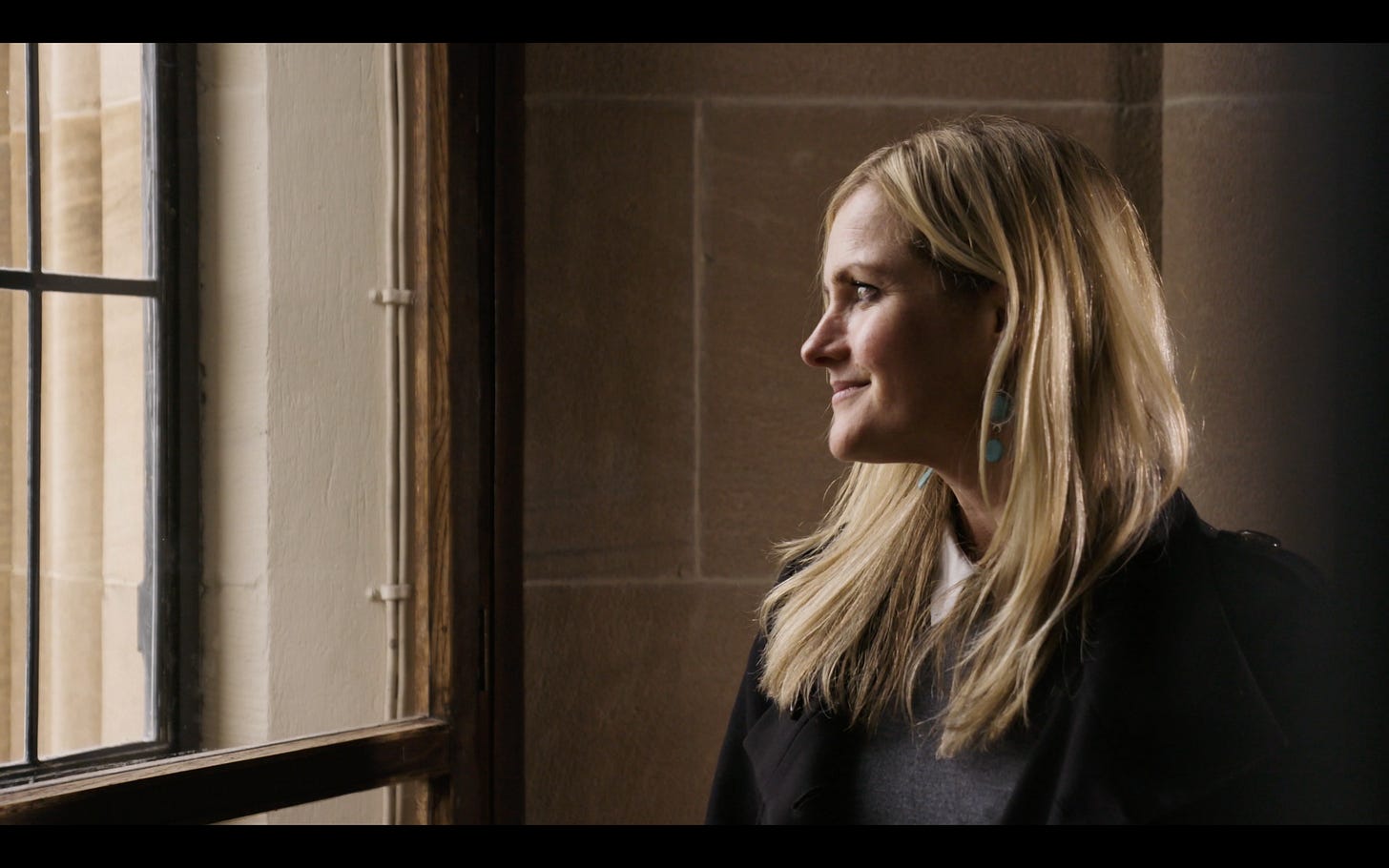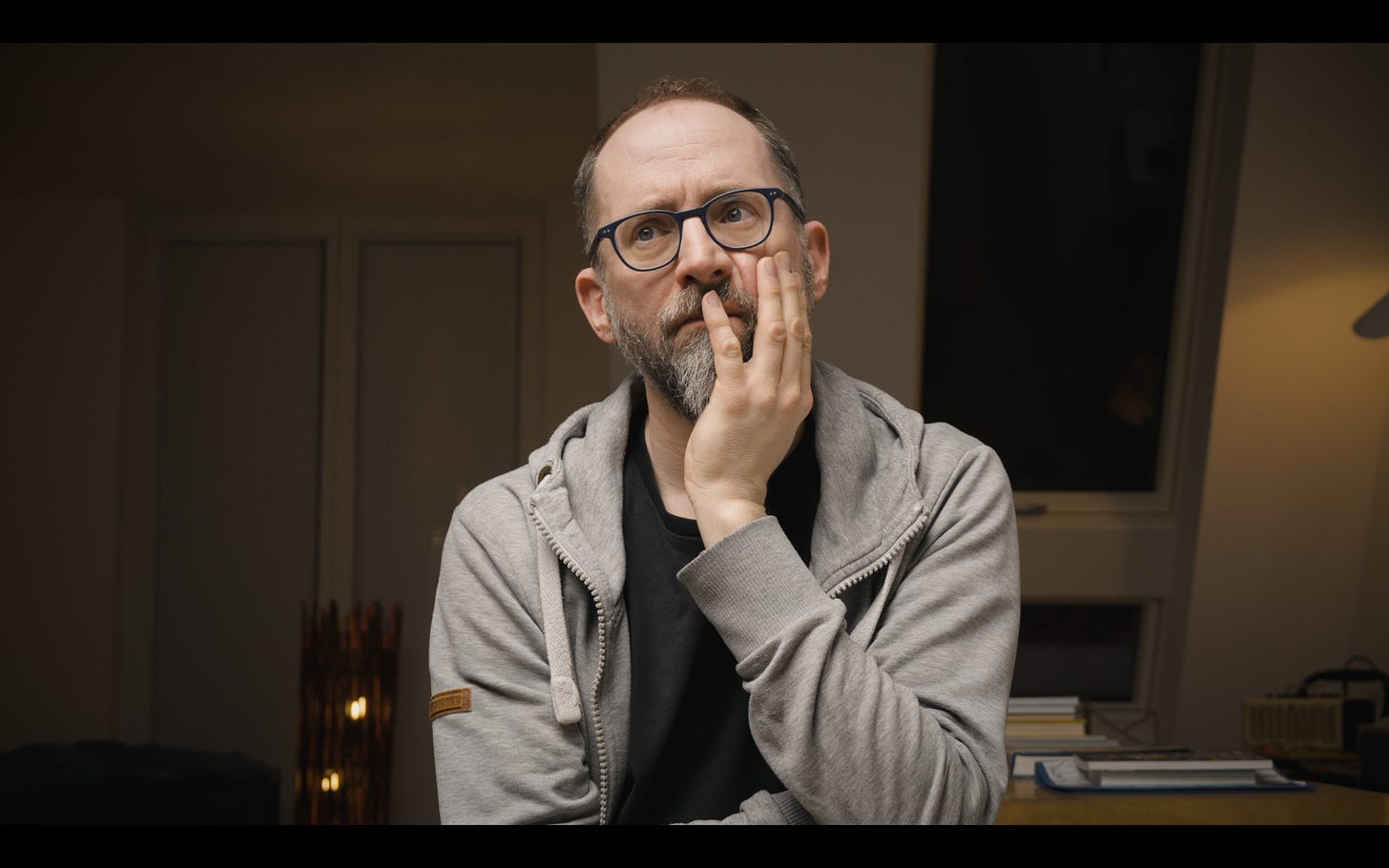FILM & INTERVIEW: Purpose
Is the Wellbeing Economy an alternative to capitalism?
Watch film trailer and see more information on Purpose here
Vlad Bunea (VB): In your documentary Purpose (Omnipolis Media) we see how Lorenzo Fioramonti and Katherine Trebeck attempt to create the framework for a new economic system around the concept of wellbeing, which aims to replace the core incentive of economic growth within capitalism with a focus on wellbeing for all humans. Are the headwinds and struggles of the political and media battle with the promotion of the Wellbeing Economy caused by this apparent antagonism with capitalism? Is the Wellbeing Economy compatible with capitalism, or does it represent an entire new economic system?
Martin Oetting (MO): Early in the process, I asked Katherine about the relationship between promoting a wellbeing economy and capitalism. She said it was difficult to even have a conversation about capitalism because different people have very different ideas as to what capitalism actually is. Some see it as capital accumulation; others as enabling markets to function. These two ideas alone are at odds with each other: You accumulate most capital if you have a monopoly, i.e. every investor wants to destroy the market.
I think her point was that we spell Capitalism with a capital C and assume everyone knows what we mean , when in fact there are many different ways to organise capitalism. I am not an economist , so I may be treading on thin ice — but my return question would be: Which capitalism do we speak about? The Keynesian version in Northern Europe during the "golden decades" after World War II? Or the experimental projects Pinochet and Friedman tried in Chile? Donald Trump’s billionaire class of crazies’ ideas about destroying the state? Or Costa Rica, trying to go a long way with very little GDP?
But if we focus on the version that has limitless capital accumulation at its core, and that is — by extension — interested in creating monopolies, then yes, the Wellbeing Economy is incompatible with that notion of capitalism. And even though none of the protagonists say it explicitly, and neither do the antagonists in the story , it does provide the headwinds. If you simply propose laws that limit the abilities of some people to generate revenue — because let’s say you want to raise taxes on candy snacks — you get an automatic knee-jerk reaction entirely fuelled by capitalist greed. But it gets dressed in civil clothes: "We need the jobs.” “You are halting innovation.” “Are you against our industry?” We have a rich history of building incredibly popular narratives this way, which a lot of people — who don't benefit from this capital accumulation! — willingly adopt for themselves despite the fact that it directly hurts them.
VB: I am glad you raised the many meanings of capitalism. I am aware that some degrowthers, for example, wish to disentangle degrowth from the wellbeing economy because of its perceived ambivalence towards capitalism. In order to escape from the web of confusion about meanings and definitions, I think there is much space for synergy when we focus on the core doctrines of capitalism which are guilty for environmental degradation, modern-day imperialism, and perverse levels of income and wealth inequality.
So far, I have identified three such doctrines: (1) proportionality, or the one share = one vote rule in corporations, (2) dispossession, which is about appropriating property with or without consent in order to transform it into profit making capital, and (3) hierarchies, or the unelected leadership structures in corporations that leave no space for democracy at the workplace. I would go as far as to say that capital accumulation is about these doctrines, and little about free markets. To replace the profit motive with the wellbeing motive we would need to phase out these anti-democratic doctrines. Which brings me back to the strong, positive message of the wellbeing economy.
From your experience making Purpose, could you see a way to package the positivity of the wellbeing economy together with an attack on the doctrines of capitalism? Is there a way to bring this messages together for a wide audeince? Should we even attempt this kind of packaging?
MO: Discussing change and political realities that differ from what we have today is incomplete when conducted in a vacuum, disjointed from the reality within which we exist. We must address this from a dynamic point of view and always envision the way things can shift, change, and become — as a process. My hunch is this: The Degrowth movement does not care enough about the dynamics of the problem, and cares more about being right. Which is highly commendable and somewhat problematic at the same time. It is a statement of fact that our economies must shrink in order to allow human flourishing on earth. But the question is: Is it smart to “brand" a movement with that truth? When we understand that any paradigmatic shift of such massive proportions creates enormous stress in the population going through it?
Other than that, I agree: There is enormous space — and need! — for synergy between the degrowth movement and the wellbeing economy movement. I see the latter as a trojan horse that is allowed into government offices, while the former provides the outside movement that paints as accurate a picture as possible about the change we need. We cannot afford to perceive different groups that essentially all want the same thing as being in some sort of rivalry or even opposition to each other.
I like your approach to distill core doctrines, rather than using the fuzzy umbrella term capitalism, to help clarify what needs to go. it enables us to talk specifics of what’s wrong with the world, and addressing that, as opposed to getting lost in futile arguments about who stands where when it comes to “capitalism”. And I also believe that the democratisation of our economy is a label that can work very well when it comes to making these ideas palatable to wider parts of the population.
However, I hesitate somewhat to make statements about “wide audiences” when it comes to our film. We are tirelessly promoting it to help spread the story, of course. We have organised over 100 screenings so far, with incredible volunteers all around the world who reach out to us because they want to show the film — which you can do here. But the film tends to attract an audience that is already on some path to rethinking the economy.
Differently put, if you host a film evening about "changing our economy so it serves people and planet”, you won’t attract middle-of-the-road semi-conservatives who are convinced GDP growth is a good thing to keep society afloat. It is the nature of most media these days that it has a pull logic — you cannot foist any film on an unsuspecting audience. Having said that, my impression is that more and more people realise that there is something wrong with the way we run our economies, thanks in part to the current insanity in the White House, I believe.
But we need a whole lot more – as much storytelling and engaging, inviting media as we can get, from Tiktok to cinema, to spread the story about a different economy and its possibilities, promises, and challenges. We must turn economics from a spectator sport into a popular sport — so regular non-economist people realise that they have a voice in something that has a lot more to do with common sense than it does with formulas and mathematics.







